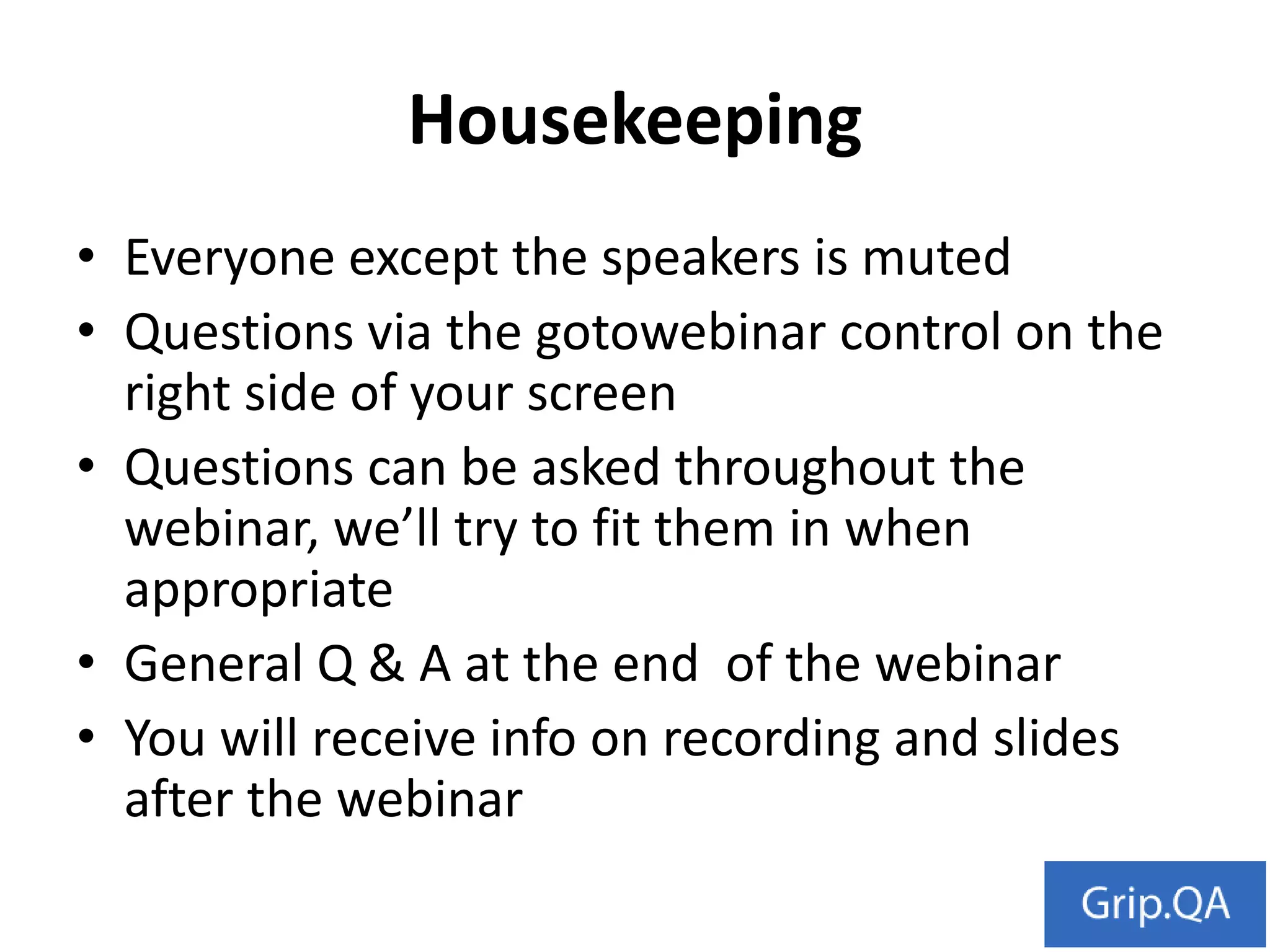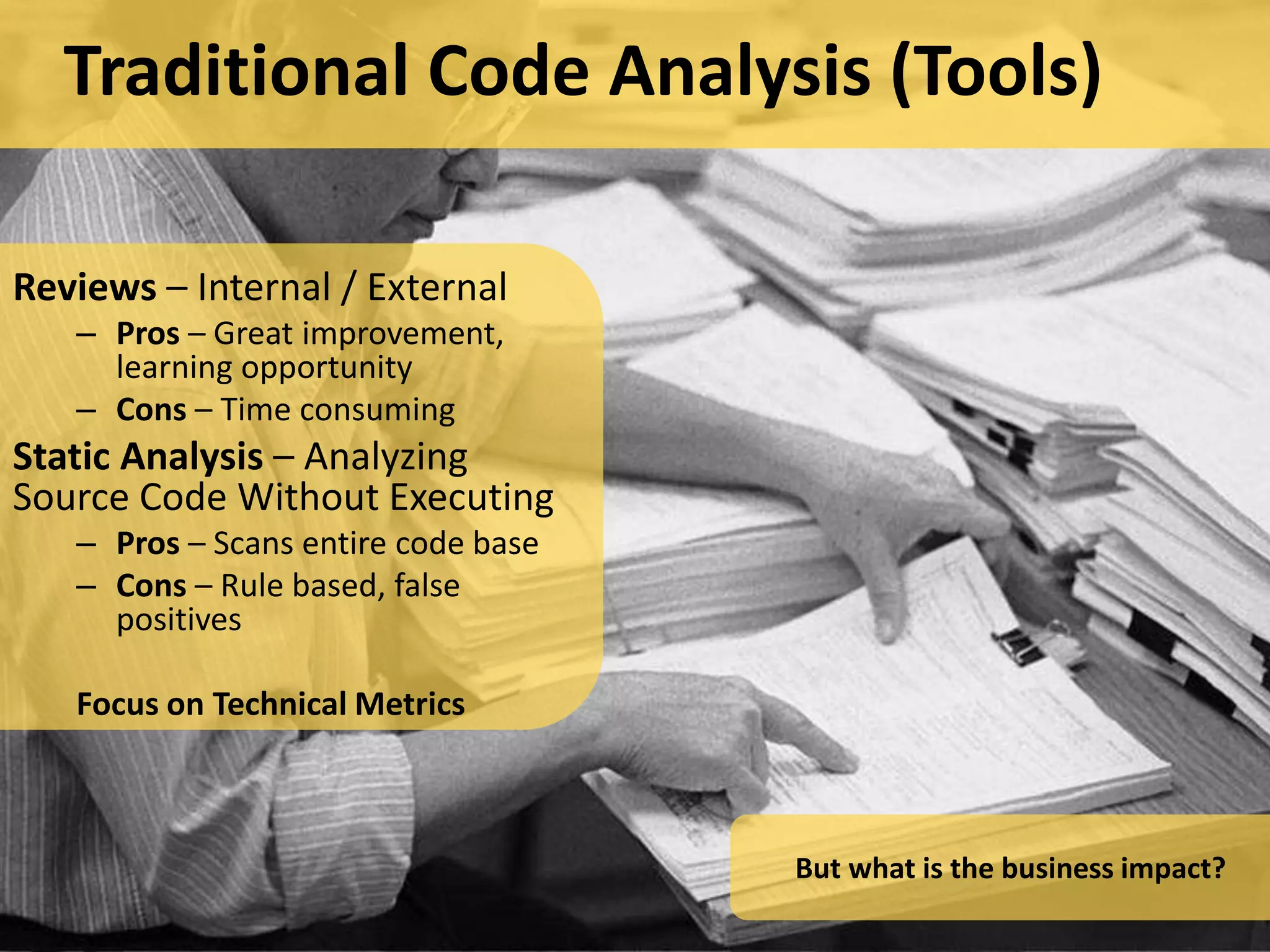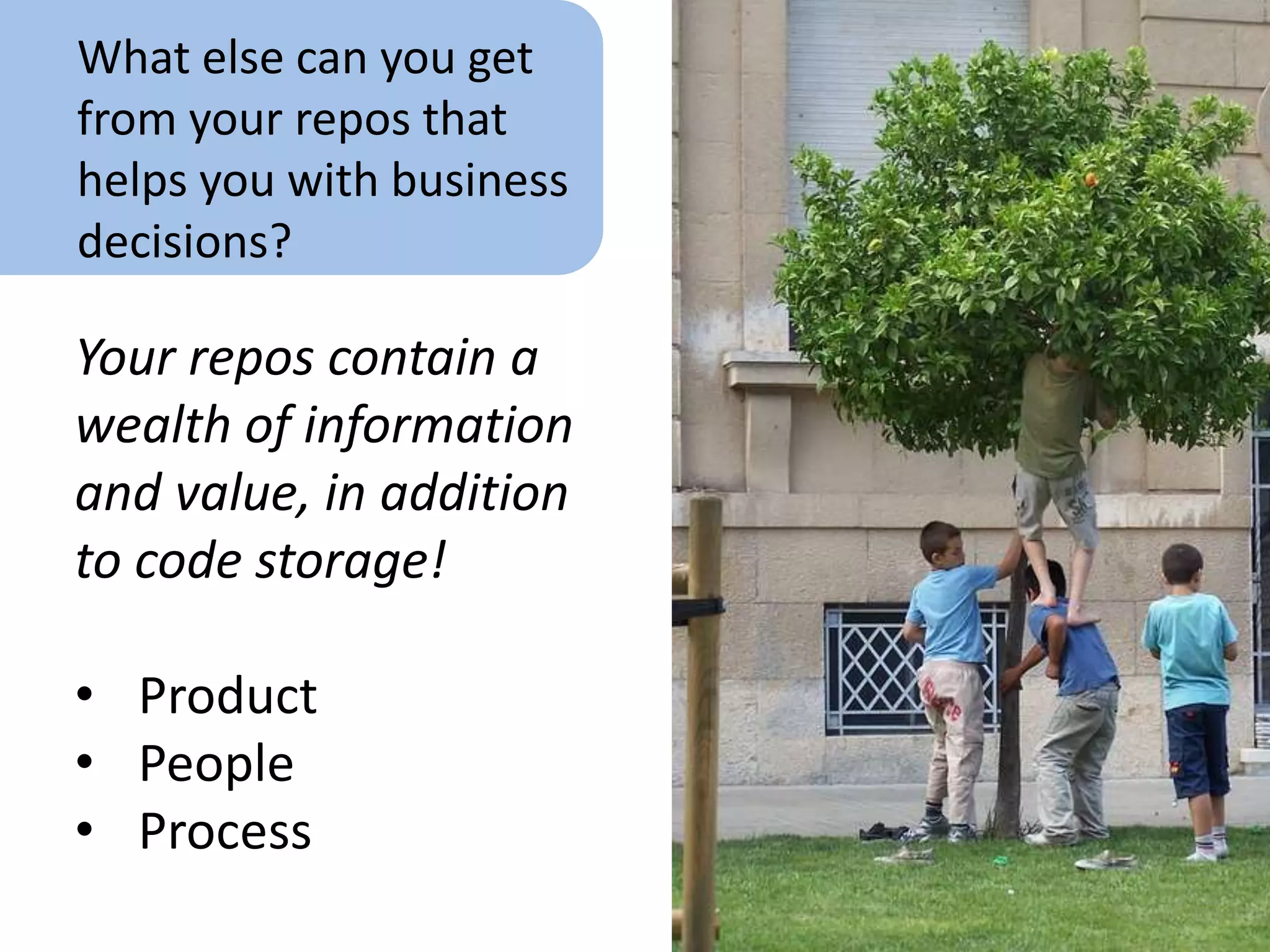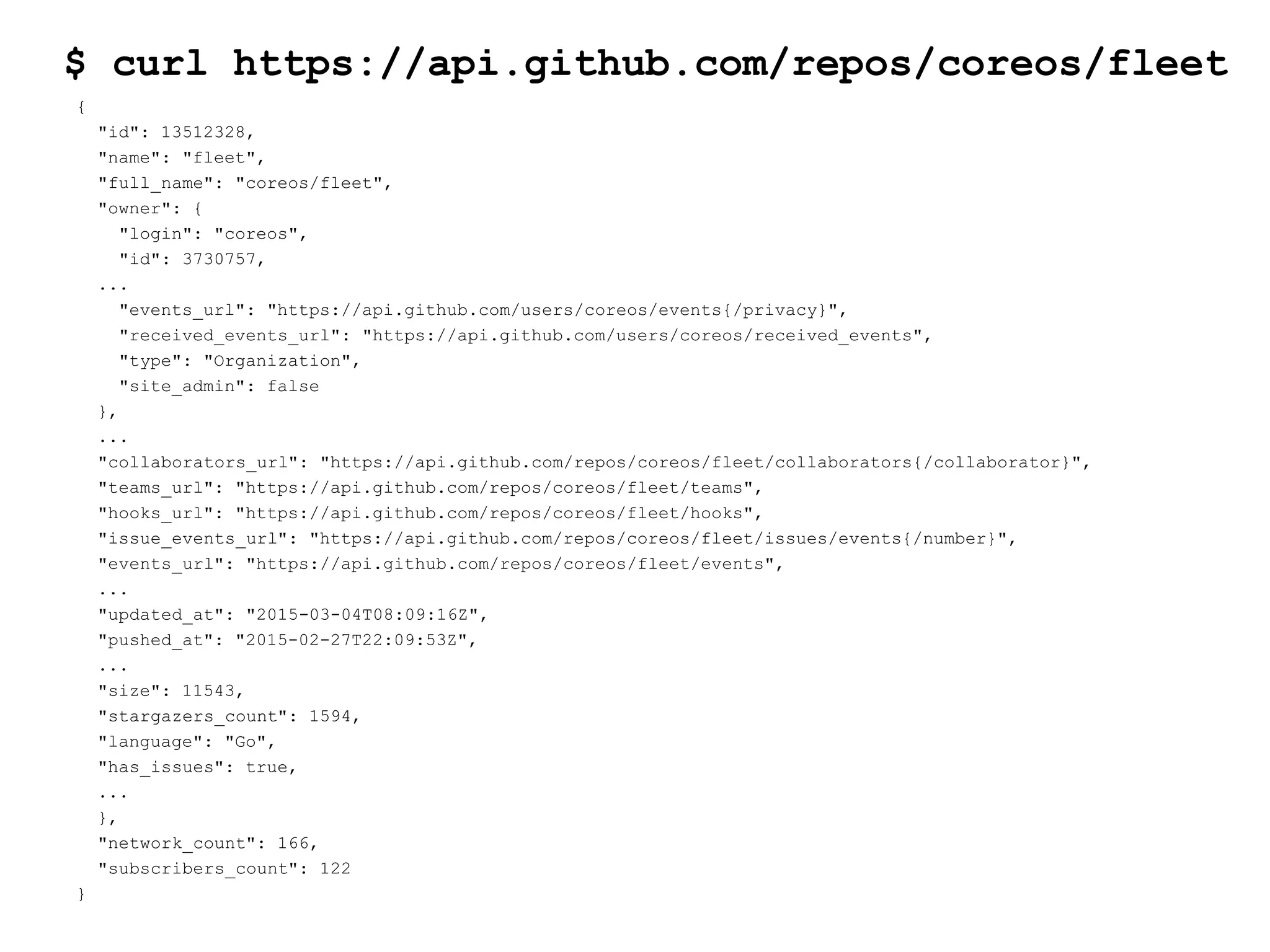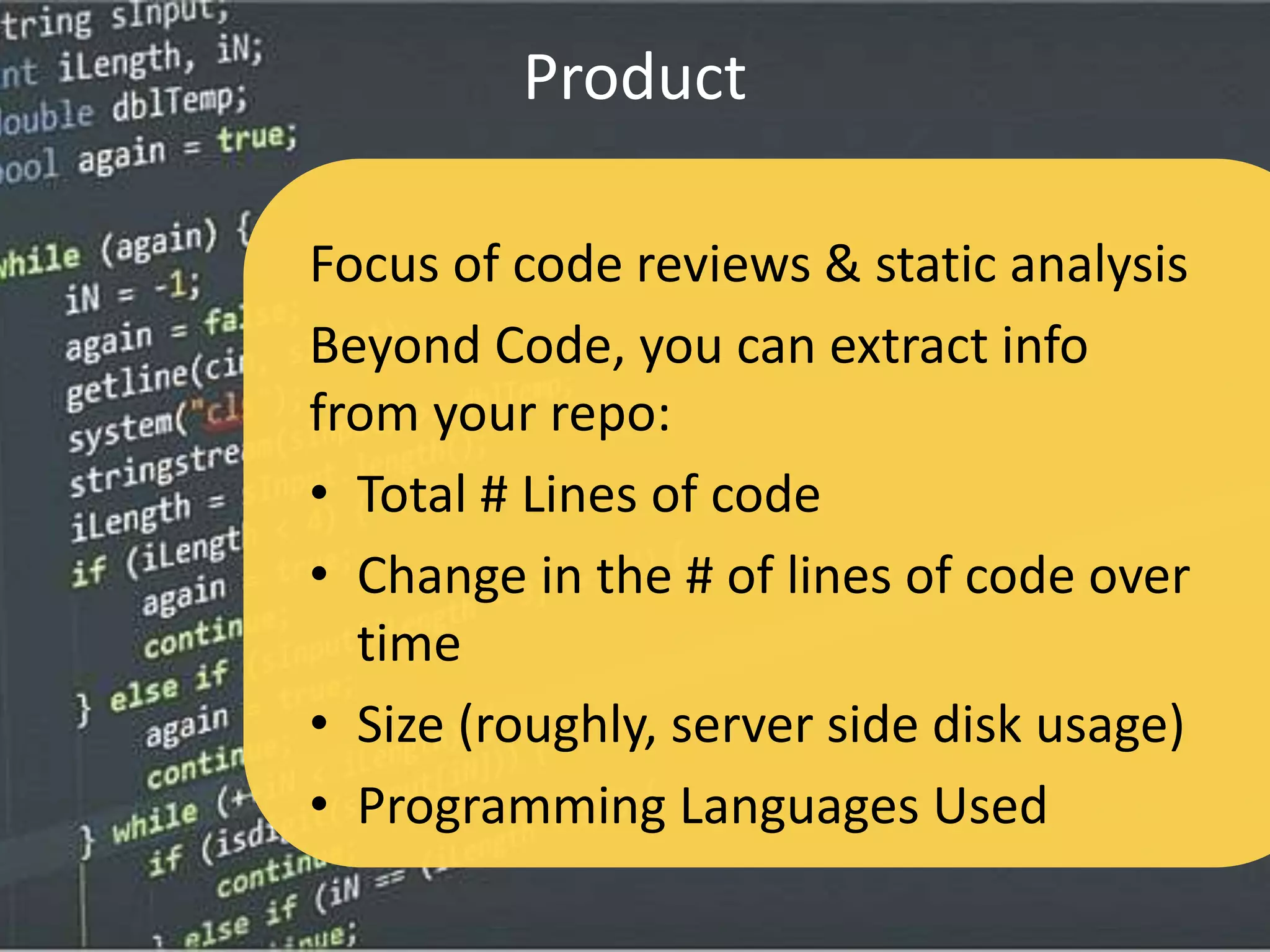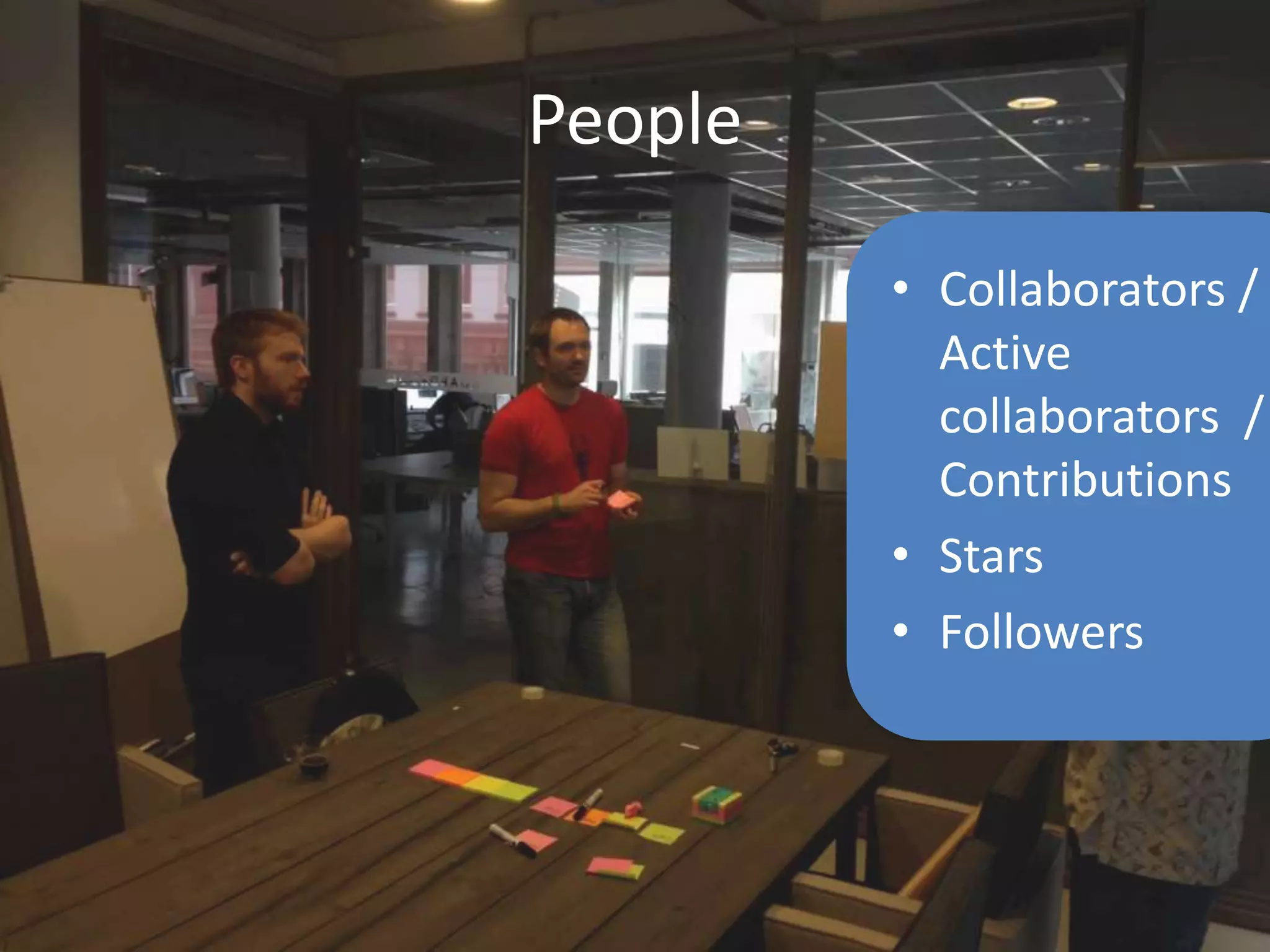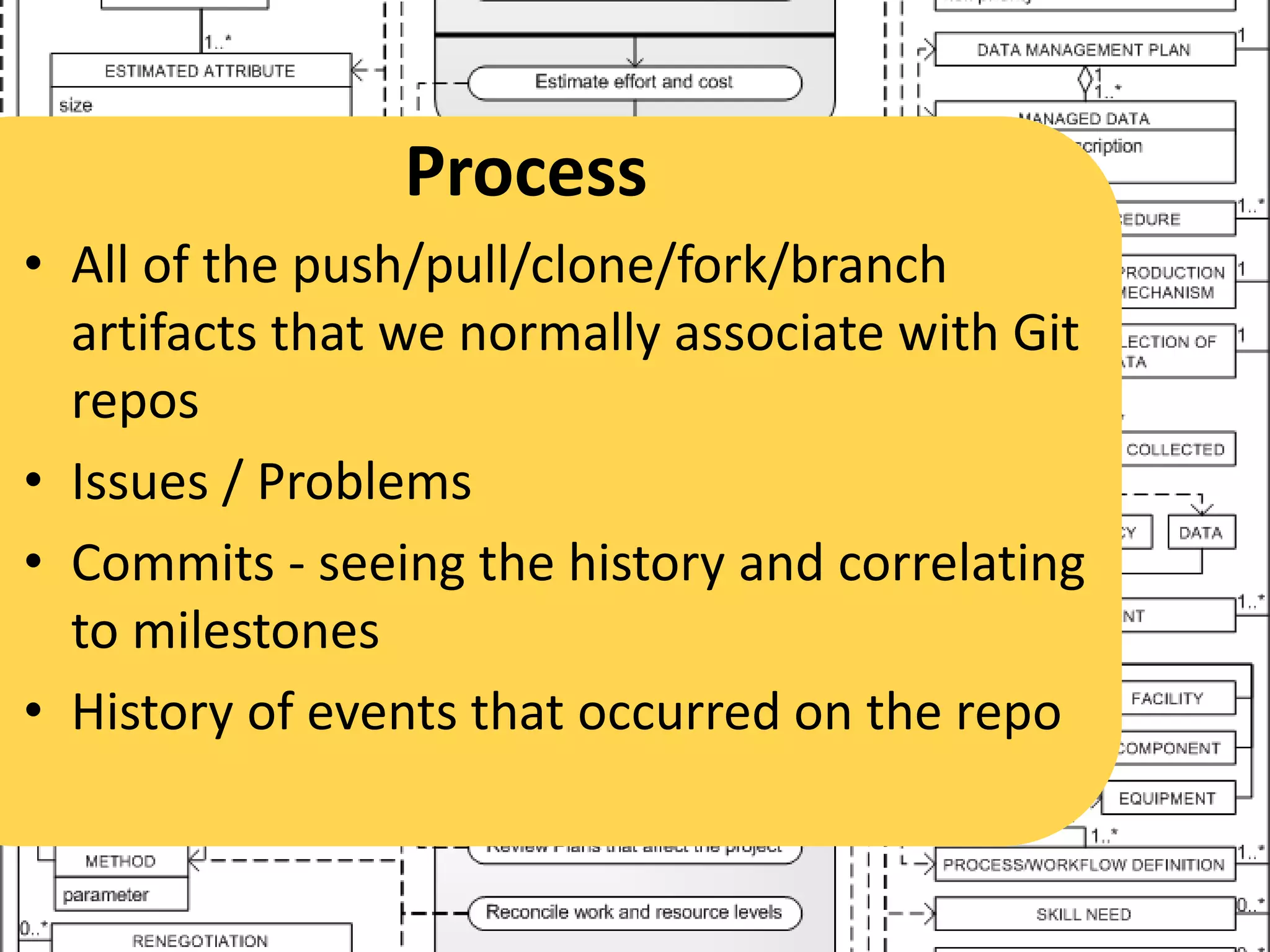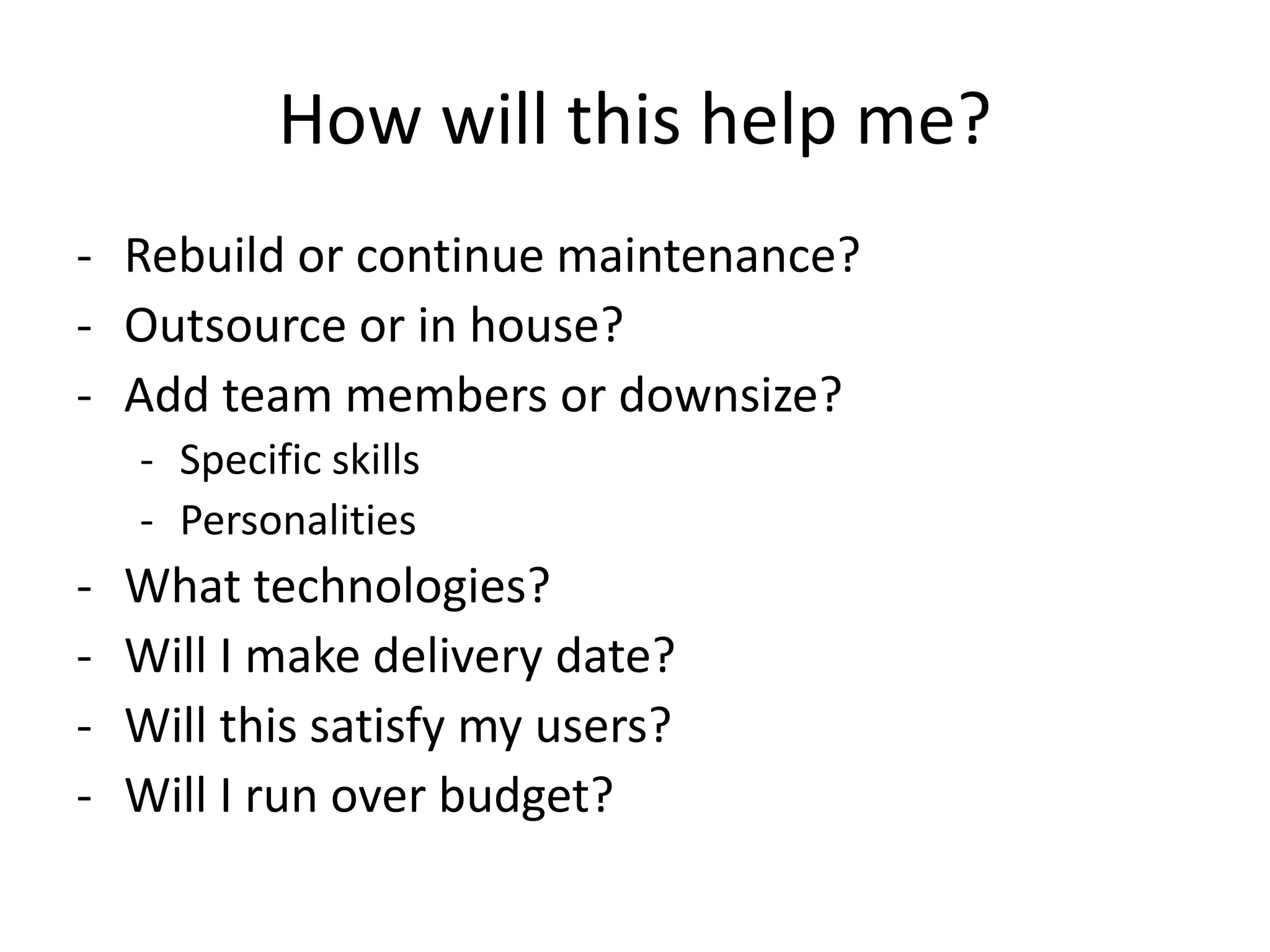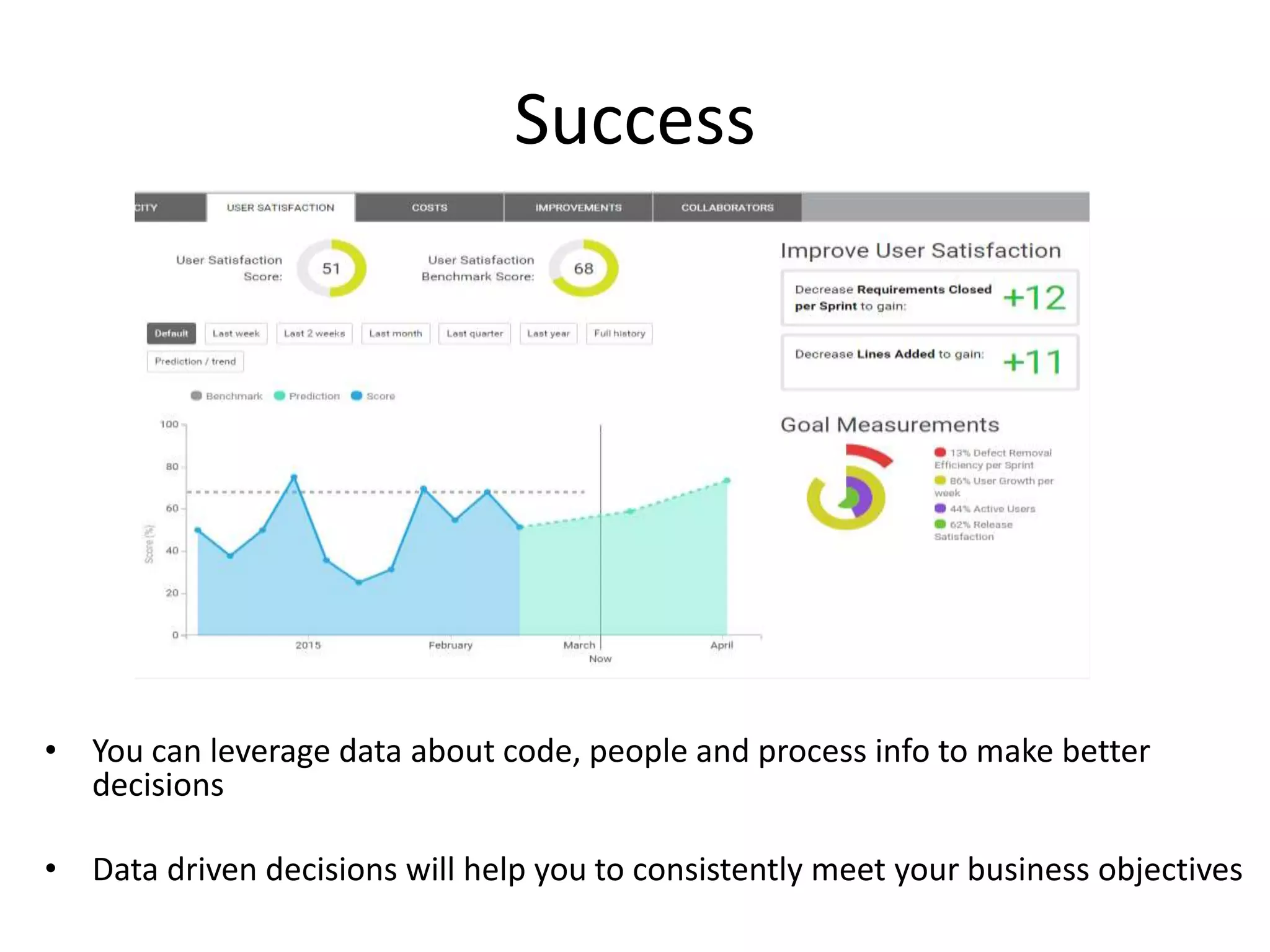The document discusses leveraging GitHub analytics beyond traditional code metrics to inform business decisions, emphasizing the value of information contained in repositories. It outlines various aspects to analyze, including product details, collaboration metrics, and process artifacts, to improve decision-making regarding project maintenance, team dynamics, and delivery timelines. Ultimately, the document promotes data-driven strategies to enhance project success through insights derived from code, people, and processes.

